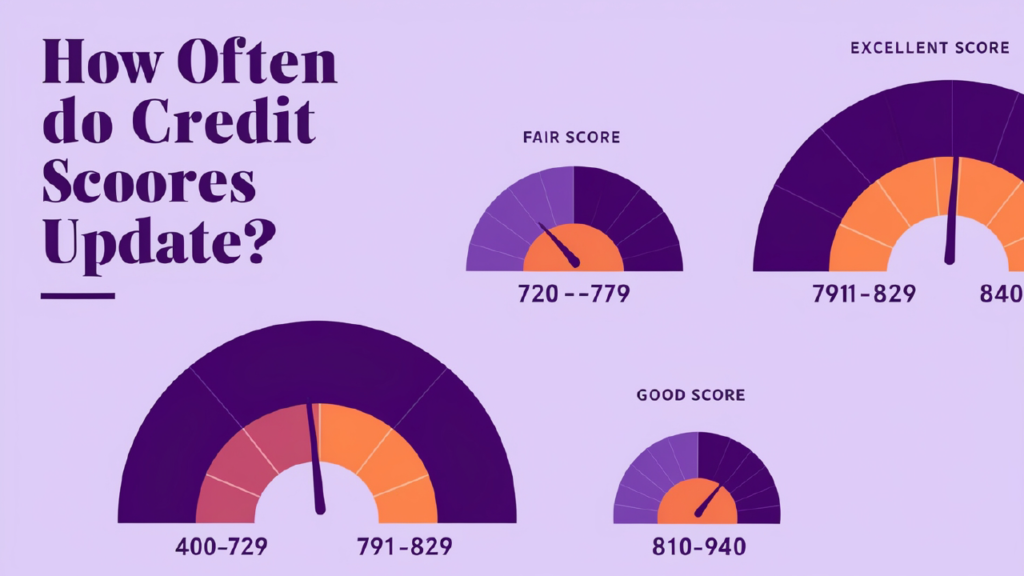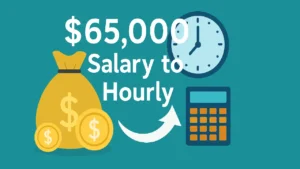
Are you going to apply for a credit card, a mortgage, or a personal loan? You are possibly asking yourself, ” How often do credit scores update ?” Your lender can check your credit report to find out how much money you owe and your credit score.
Credit ratings tell lenders how likely you are to pay back any money you borrow. We’ll go over all you need to know about credit score updates, what affects your credit score, and the best approach to keep your credit score in this blog.
What does a credit score mean?
A three-digit number, usually between 300 and 850, is your credit score. It tells lenders how likely you are to pay back a loan. A better score means you are more likely to be able to get credit.
How often do scores on credit cards change?
The three main credit bureaus are Experian, Equifax, and TransUnion. They all show that scores and reports are changed every 30 to 45 days. Each bureau depends on credit card issuers to give them the most recent information about your payments and finances.
Creditors send reports to credit bureaus every month, although each credit card issuer may do so at a different time of the month. If you owe money to more than one person, your credit score could change every week based on when each credit provider reports to the credit bureaus. But the actual improvement in your credit score will depend on things. This includes whether your credit balances went up or down.
7 things that can change your credit ratings
Here are some crucial things that can change your credit scores:
- History of payments
Your history includes both times when you paid your bills on time and times when you missed payments. It’s preferable to pay on time because late payments can harm your credit scores and stay on your credit reports for up to seven years. - Accounts that are in collections
If you send or sell unpaid bills to a collection agency, they may tell the credit bureaus about them, which could affect your credit scores. - A mix of several kinds of credit accounts
Utilising both revolving and installment credit accounts might help your credit scores more than just utilising one type of account. - How old are your accounts?
Having older accounts and a higher average age of accounts on your credit reports can also help your credit ratings. Getting a new credit card or loan could lower the average age of your accounts. Even if accounts are paid off and closed, they could still be taken into account when looking at age-related issues. - Hard questions
A record of the credit check, called a hard inquiry or pull, is recorded to your credit report when you apply for a new credit account. Credit enquiries aren’t a big deal, although they could lower your credit ratings a little.
The best ways to keep and raise your credit ratings

It might take time to get a decent credit score, and keeping it can be hard. There are some fundamental rules that will help you obtain a great score, though.
- Make sure you pay your bills on time.
One of the most essential things that goes into your score is your payment history. Paying your bills on time for a long time will help you get a good credit score. You can’t tell the credit bureaus about a payment until it is at least 30 days late. If you missed a payment, try to catch up on your account as quickly as you can. You should get in touch with your creditors right away if you can’t pay your payments. - Pay your credit card bills early.
You could have a high utilisation rate even if you pay off your credit card in full every month because credit card balances are usually reported to the credit bureaus before your payments are due. If you’re already paying off your cards, making payments early (before the end of each statement period) could help lower your utilisation rate. - Know what causes hard enquiries.
When you apply for credit, it can lead to harsh enquiries that could lower your credit scores. Credit score agencies also know that looking for a good loan rate isn’t always a bad thing. You can apply for multiple mortgages to find the lender with the best rate, but you could only end up taking out one loan. Some scoring models only count hard enquiries from auto loans, mortgages, and student loans that happen within 14 days as one inquiry for scoring reasons. Some scoring models may “deduplicate” enquiries from other types of accounts for a longer time.
How to find out your credit score
Lenders, banks, credit card issuers, and online apps all provide free ways to check your credit score. There are also paid credit monitoring services that may offer further capabilities, such as identity protection monitoring or credit score simulators.
Conclusion
At least once a month, your credit score will change. Your credit card issuer’s reporting schedule and the way you handle your money both affect changes. It can take a while for that number to go up. The best thing to do is to look at the broad picture and create solid credit habits that will help your credit score in the long run.
FAQs
How often do lenders report to the credit bureaus?
They require 30-45 days, Lenders, creditors, and financial institutions report new information about you to the credit bureaus
Which credit reporting agencies does my lender provide information to?
Check with your lender to find out. Many large lenders report to all three major credit bureaus, Equifax, Experian, and TransUnion. But some may only report to one or two bureaus, or none at all.
How long does it take for a credit score to update after paying off debt?
Credit scores can be generated each time a new credit report is requested. Once the new zero balance is reported to the credit bureaus and your credit report is updated, credit scores based on the new report will reflect that you paid off the debt.






